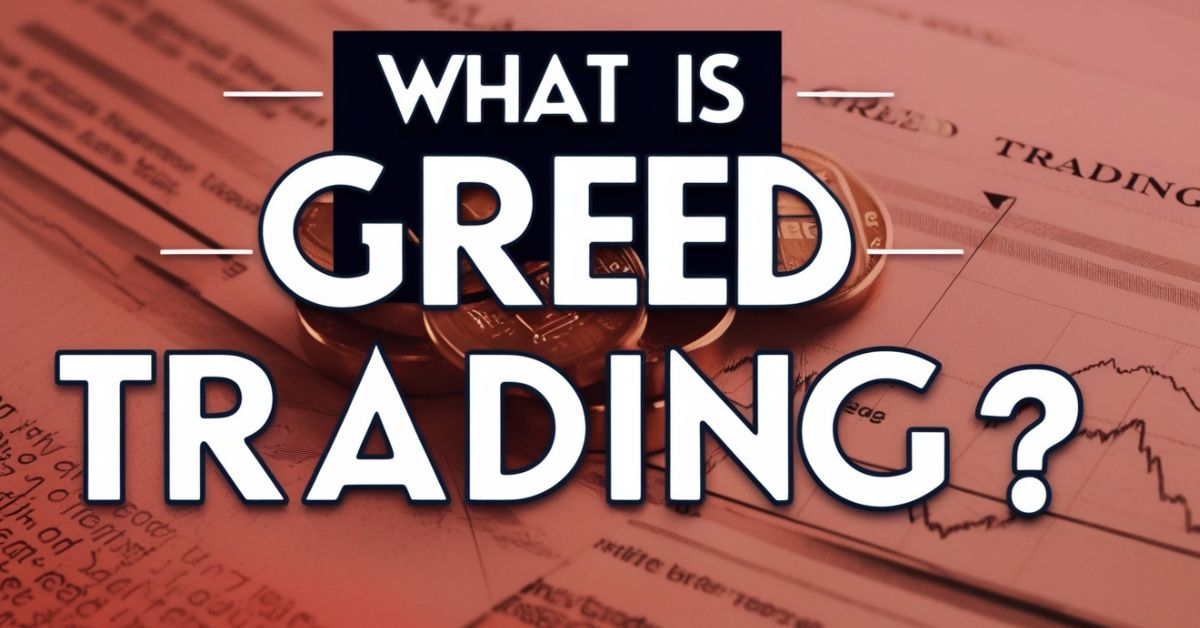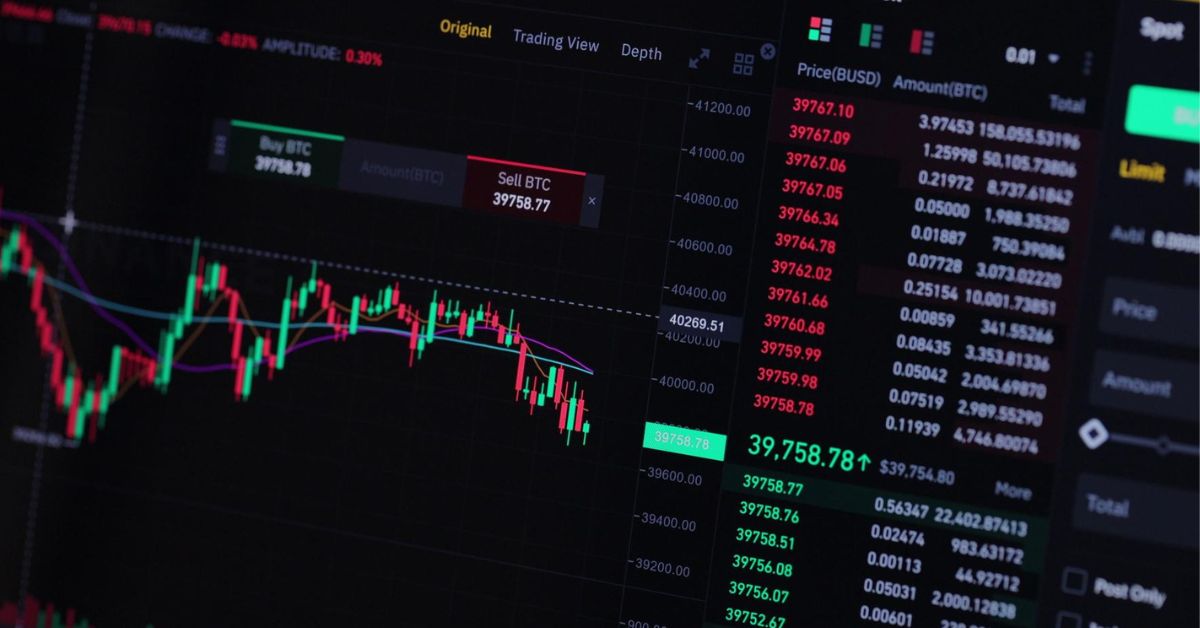The emotion of greed can lead traders to make irrational decisions, excessive risk-taking, and substantial financial losses. Knowledge of greed trading is essential for anyone looking to succeed in the market. So, what is greed trading?
In this blog post, we will explore the concept of greed trading. Our discussion will focus on its causes, signs, and consequences. Additionally, we will provide strategies to manage and overcome greed in trading. Understanding and controlling greed is the key to long-term success in trading.
Prime XBT is a reliable crypto trading platform that offers valuable resources and tools to help traders stay informed. The platform provides reliable data and trading strategies to reduce the influence of greed. So, join PrimeXBT today! Use promo code PRIMEOTT to receive a +7% bonus on your deposit.
What is Greed Trading?

The desire for quick profits drives greed. It often leads traders to take excessive risks without considering potential losses. Greed affects the brain’s reward system, making traders crave immediate gains. It clouds judgment and leads to impulsive actions. In trading, greed can make you hold onto losing positions.
You hope for a turnaround, ignoring warning signs. This behavior often results in significant losses. Recognizing greed in yourself is crucial. Signs include overtrading and ignoring your trading plan. Chasing unrealistic gains is another red flag. Understanding these triggers is vital. It helps traders develop better strategies. Overcoming greed is essential for long-term success.
Causes of Greed Trading
Several factors influence greed trading. Understanding these causes can help traders recognize and manage their behavior. Here are some key drivers of greed in trading:
Desire for Quick Profits
The allure of quick profits is a powerful motivator. The possibility of fast money draws many traders. They want to achieve significant gains rapidly. This desire often leads to impulsive decisions. They might jump into trades without proper analysis.
The fear of missing out (FOMO) exacerbates this behavior. Traders chase trends without considering the risks. This can result in overtrading and substantial losses. Understanding the importance of patience is crucial. Quick profits are tempting but can be dangerous. It’s essential to have a long-term perspective.
Overconfidence
Overconfidence can be a trader’s downfall. Some traders believe they can’t lose, and they start to think they are infallible. This belief leads them to take bigger risks. Overconfidence blinds them to potential dangers. They may ignore their trading plan, resulting in irrational and risky trades.
Overconfident traders often disregard market signals. They believe their instincts are superior. This mindset can lead to substantial financial losses. Recognizing overconfidence is key. Traders need to stay humble and realistic. Continuous learning and self-assessment help manage this tendency.
Market Volatility

Volatile markets can trigger greed. Rapid price changes attract traders, who see opportunities for quick gains. This environment can lead to hasty decisions. Traders might enter and exit positions too quickly. Volatility increases the fear of missing out, driving impulsive trading behaviors.
Market fluctuations can be unpredictable. Traders must exercise caution and stick to their trading plan. Understanding market volatility is essential. It helps traders stay disciplined and focused. Managing emotions during volatile times is crucial for success.
Peer Pressure and Success Stories
Hearing about others’ successes can fuel greed. Peers and success stories influence traders. They want to replicate these achievements. This pressure can lead to unnecessary risks. Success stories often highlight big wins. They rarely mention the associated risks and losses. This creates unrealistic expectations.
Traders might overestimate their potential. They take on more risks than they can handle. Peer pressure can distort judgment. It’s important to stay grounded. Focusing on personal goals and strategies is vital. Avoiding comparison with others helps maintain discipline.
Signs of Greed Trading
Recognizing the signs of greed trading is crucial for maintaining discipline. Being aware of these behaviors helps traders make better decisions. Here are some common indicators that greed may be influencing your trading:
Overtrading
One of the most significant signs of greed is overtrading. Traders feel the urge to enter multiple positions at once, even when market conditions aren’t favorable. Overtrading can lead to increased transaction costs and commissions.
It often results in emotional fatigue and poor decision-making. Greedy traders chase every opportunity without thorough analysis. This behavior diminishes their overall trading performance. Managing the number of trades is essential for success. Limiting trades allows for more focus on quality over quantity.
Ignoring Trading Plans
Another sign of greed is the tendency to ignore established trading plans. Greedy traders deviate from their strategies impulsively, chasing trends rather than sticking to their original plans. Ignoring trading plans can lead to significant financial losses.
This behavior increases the likelihood of making rash decisions. A solid trading plan should outline clear entry and exit points. Adhering to the plan is vital for long-term success in trading. Consistency is key to effective trading strategies.
Chasing Losses

Greed often manifests in the behavior of chasing losses. Traders may hold onto losing positions in hopes of a turnaround. They believe that a recovery is just around the corner. This mindset can lead to even greater financial losses over time.
The idea that they can recover their losses quickly is a trap. Chasing losses can create emotional turmoil and stress. It is essential to cut losses and move on. Developing a plan for managing losses is crucial for success.
Unrealistic Profit Expectations
Having unrealistic profit expectations is another indicator of greed. Traders may set their sights on exorbitant returns that are unlikely. They often ignore the risks involved in achieving such gains. This mindset can lead to poor decision-making and increased risk-taking.
Unrealistic expectations can create a false sense of security. Traders must evaluate their goals in relation to market conditions. Setting achievable and realistic profit targets is essential. This helps maintain a balanced approach to trading.
A Feeling of Euphoria
A strong feeling of euphoria after a successful trade can be a red flag. Traders may feel invincible after several profitable trades, which can lead to increased risk-taking behaviors. The sense of invincibility often clouds judgment and rationality.
Traders may forget about their risk management strategies. Recognizing this feeling is essential for maintaining a balanced perspective. Staying grounded and humble helps mitigate greed’s influence. It’s important to remember that markets are unpredictable and can change quickly.
Traders who are aware of these signs can manage their emotions more effectively. This awareness allows for more rational decision-making. Taking the time to reflect on these behaviors is crucial for long-term trading success. Consistency, discipline, and emotional control are vital to achieving trading goals.
Consequences of Greed Trading
Greed trading can have serious consequences for traders. Understanding these outcomes is essential for fostering a disciplined approach. Here are some of the most significant consequences of greed in trading:
Significant Financial Losses
One of the most immediate consequences of greed is significant financial loss. Greedy traders often take unnecessary risks, hoping for quick returns. This can lead to poor decision-making and impulsive trades, which usually result in a substantial decline in their trading capital.
Ignoring warning signs can exacerbate these losses. Financial setbacks can lead to emotional distress and anxiety, and the cycle of chasing losses can further compound the damage. Long-term success in trading requires disciplined risk management. Understanding the risks is crucial to preserving capital.
Emotional Turmoil
Greed trading leads to emotional turmoil for many traders. The pursuit of profits can create intense stress and anxiety. Traders may feel pressure to make quick decisions, leading to emotional exhaustion. This emotional strain can cloud judgment and impact decision-making.
The fear of missing out (FOMO) can increase anxiety levels. A trader’s mental well-being can be compromised. Prolonged exposure to this emotional stress can lead to burnout. Maintaining emotional balance is essential for effective trading. Strategies for emotional management are vital for long-term success.
Loss of Trading Discipline

Greed can erode trading discipline over time. As traders chase after profits, they may abandon their strategies. This loss of discipline can lead to erratic trading behavior. Traders might ignore their original trading plans and risk management rules. The lack of structure can result in chaotic trading decisions.
Over time, this can damage a trader’s overall performance. Rebuilding discipline after losing it can be challenging. It requires self-awareness and a commitment to following trading principles. Establishing a disciplined approach is critical for achieving consistent results.
Diminished Reputation
Greed trading can also diminish a trader’s reputation. Traders who consistently make impulsive decisions may gain a negative perception. Their peers may view them as reckless or irresponsible. This reputation can impact future trading opportunities and collaborations.
Trust is essential in the trading community, and losing it can be costly. Maintaining a reputation for discipline and rationality is vital. Traders should focus on building a solid track record of successful trades. A good reputation can lead to more opportunities in the long run.
Inability to Learn from Mistakes
Greed can hinder a trader’s ability to learn from mistakes. When traders are overly focused on profits, they may ignore valuable lessons. This can lead to repeated mistakes and missed growth opportunities. An unwillingness to analyze past trades can stunt personal development.
The ability to learn from both successes and failures is essential. Reflecting on trades and adjusting strategies is crucial for improvement. Cultivating a growth mindset helps traders adapt and succeed. Being aware of the consequences of greed is vital for long-term success.
Recognizing these consequences is essential for traders. Emphasizing emotional balance and learning from mistakes leads to more sustainable trading success.
Strategies to Overcome Greed Trading
Overcoming greed in trading requires a combination of self-awareness and practical strategies. Implementing these approaches can help traders maintain discipline and make better decisions. Here are effective strategies to combat greed in trading:
Establish a Trading Plan
Creating a comprehensive trading plan is essential. A solid plan outlines specific entry and exit points for trades. It should also include risk management strategies, such as stop-loss orders. A well-defined plan helps traders stay focused and disciplined.
By following the plan, traders can avoid impulsive decisions driven by greed. Regularly reviewing and adjusting the plan ensures it remains effective. Sticking to a trading plan fosters consistency in trading performance.
Set Realistic Profit Targets
Setting realistic profit targets is crucial in overcoming greed. Traders should evaluate their goals based on market conditions and personal capabilities. Unrealistic expectations can lead to impulsive decisions and increased risk-taking.
Establishing achievable targets promotes a balanced approach to trading. This encourages traders to remain patient and disciplined. Taking time to analyze trades helps in setting reasonable profit goals. Regularly reviewing these targets can also enhance focus and clarity.
Implement Risk Management Techniques
Effective risk management is key to combating greed. Traders should determine the amount of capital they are willing to risk on each trade. Implementing stop-loss orders can help limit potential losses. This prevents traders from holding onto losing positions in hopes of a turnaround.
Utilizing tools like the stop loss calculator from our On Tilt Trading Store can enhance your risk management strategies. This calculator helps traders assess potential losses and make informed decisions. Diversifying investments across different assets can also reduce risk exposure. A strong risk management strategy fosters a sense of security and control, helping traders make more rational decisions instead of emotional ones.
Practice Mindfulness and Self-Reflection

Practicing mindfulness can significantly help in overcoming greed. Traders should take time to reflect on their emotions and behaviors. Self-reflection helps identify patterns of greed in trading decisions. Keeping a trading journal can be a useful tool for this purpose.
Writing down thoughts and feelings associated with trades enhances self-awareness. Mindfulness techniques, such as meditation, can help reduce stress and anxiety, encouraging a more balanced approach to trading.
Stay Educated and Informed
Continuous education is vital for successful trading. Staying informed about market trends and economic indicators helps traders make informed decisions, reducing the likelihood of impulsive trades driven by greed.
Attending workshops, reading books, or joining trading communities fosters knowledge sharing. Learning from experienced traders can provide valuable insights. Being well-informed enhances confidence and helps mitigate emotions when trading.
Seek Support from a Trading Community
Joining a trading community can provide valuable support. Engaging with like-minded individuals allows for sharing experiences and strategies. This connection can help traders stay grounded and focused.
Peer accountability encourages disciplined trading behavior. Discussing challenges and successes with others fosters a sense of belonging. A supportive community can be a powerful tool for overcoming greed.
Read More: How To Eliminate Greed in Trading
Conclusion
Greed trading can lead to significant financial losses and emotional turmoil. Implementing strategies like establishing a trading plan, setting realistic profit targets, and practicing mindfulness can help overcome greed.
Tired of losing money due to panic selling, FOMO, overtrading, and bag holding? We recommend the Vestinda trading app to eliminate emotional decision-making with automated crypto trading strategies. Stay disciplined, informed, and supported to achieve consistent trading success.



